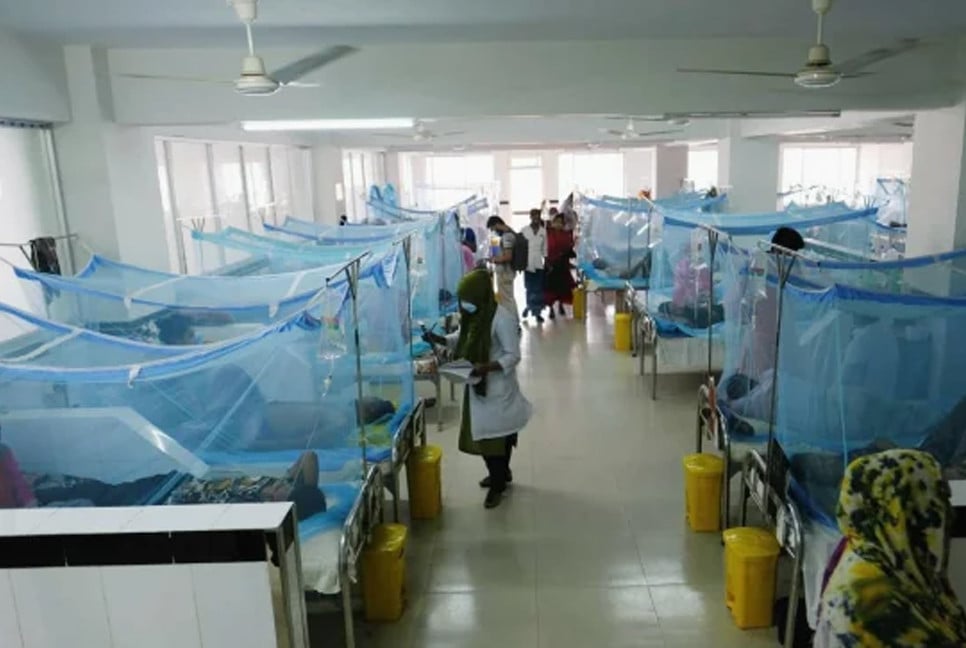In the first eight days of November, 45 dengue-related deaths have been reported, signaling a concerning increase in fatalities.
The Directorate General of Health Services reported that five more deaths were recorded yesterday, bringing the total death toll to 342. Meanwhile, the number of dengue cases has reached 69,922, with 40,999 of those cases occurring outside Dhaka.
Monthly dengue fatalities have sharply increased, rising from just eight in June to 134 in October. Experts attribute the high death toll to factors such as delayed hospitalizations, inadequate mosquito control, the widespread presence of the Den-2 virus strain, cases of multiple infections, and occasional diagnostic errors.
Entomologist Manzur A. Chowdhury cautioned that dengue cases may reach their peak in November and could continue into February.
Meanwhile, GM Saifur Rahman of National University criticized the inadequate efforts of Dhaka city corporations in detecting and eradicating Aedes mosquito breeding sites, particularly in district towns. Rahman called for enhanced surveillance to identify hotspots and emphasized the need for cooperation between local authorities, community organizations, and schools to combat the outbreak.
Dr. HM Nazmul Ahsan from Shaheed Suhrawardy Medical College Hospital identified several high-risk groups, including the elderly, pregnant women, infants, obese individuals, and those with underlying health conditions, as being particularly vulnerable to severe dengue.
He noted that many patients are experiencing shock after their fever subsides, often leading to delayed hospitalization and more serious outcomes. Dr. Ahsan also pointed out that this year’s dominant cosmopolitan sub-variant of the Den-2 virus is especially dangerous, contributing to increased bleeding, greater severity of symptoms, and a higher mortality rate.
Dr. Ahsan recommended prompt hospitalization for severe symptoms such as stomach pain, respiratory distress, extreme fatigue, bleeding, or vomiting. He also advised seeking medical consultation at the onset of fever and having a Complete Blood Count (CBC) test by the third or fourth day.
Meanwhile, Dr. Tahmina Shirin, director of the Institute of Epidemiology, Disease Control and Research (IEDCR), emphasized the importance of staying hydrated and eliminating stagnant water to prevent mosquito breeding.
(Source: The Daily Star)
BD Pratidin English/Mazdud



































































